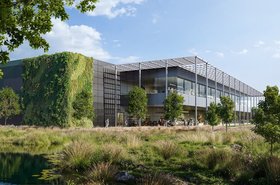The UK government has announced it is committing £7.8 million ($8.7m) to fund UK participation in EuroHPC research.
In a statement, the government said that as a result of the funding, UK businesses and researchers will be supported to participate in EuroHPC research grants in the development of supercomputers.
“This will mean British AI and high-performance computing researchers can work unobstructed with their peers across Europe,” the government said in a statement. “International collaboration and broad access to computational resources will be key to unlocking the benefits AI promises to deliver across society and the economy.”
In January 2025, the UK government announced plans to build a new supercomputer with “enough AI power to play itself at chess half a million times a second.”
The news came five months after the government shelved tech and AI projects worth £1.3 billion ($1.66bn), claiming the previous administration had failed to allocate the necessary funding to support them. Canceled projects included the UK's first exascale supercomputer that was set to be built at the University of Edinburgh and funds for the AI Research Resource (AIRR).
No further information about the supercomputer announced in January, including its location and intended performance, has been released by the government.
EuroHPC JU is a joint initiative between the EU, 34 European countries, and private partners to develop a supercomputing ecosystem in Europe.
Launched in 2018 and headquartered in Luxembourg, its mission is to develop, deploy, extend, and maintain a secure and connected supercomputing and quantum computing ecosystem, while supporting the development of key HPC skills for European science and industry.
The agreement was announced alongside three other funding commitments made by the UK government on the second day of the AI Action Summit in Paris, France. The other projects will see £37.9m ($47m) in government funding and an additional £44.7m ($55.5m) in co-investments from other sources to support AI technologies and research focused on the development of treatments and diagnostics for diseases like cancer and Alzheimer’s.
“Today, we open new avenues for them to do exactly that – building bridges with our international partners so the entire global community can share in the boundless opportunities of AI-powered progress and backing new innovative companies applying AI to tackle real-world challenges,” said Science and Technology Secretary, Peter Kyle.







